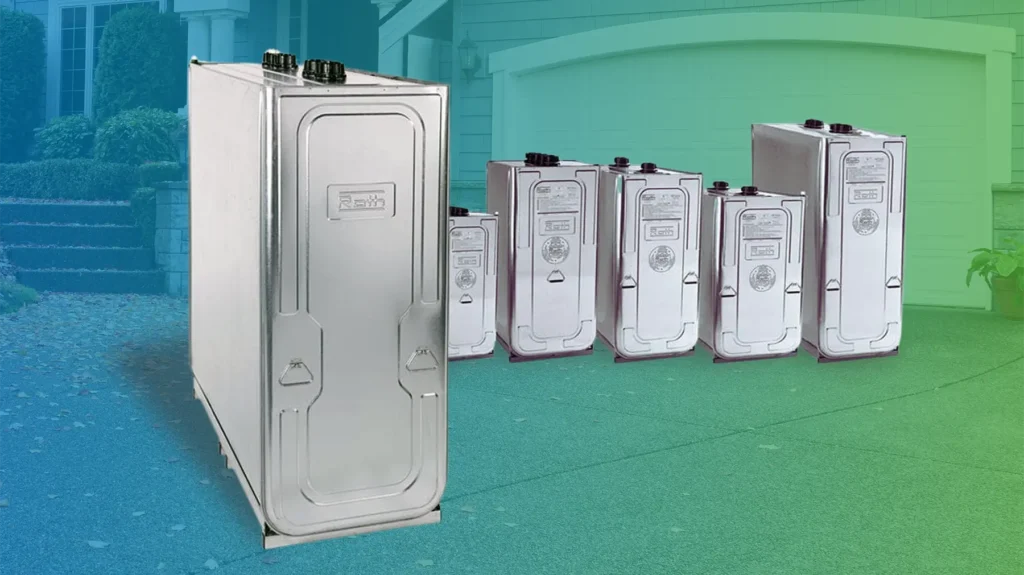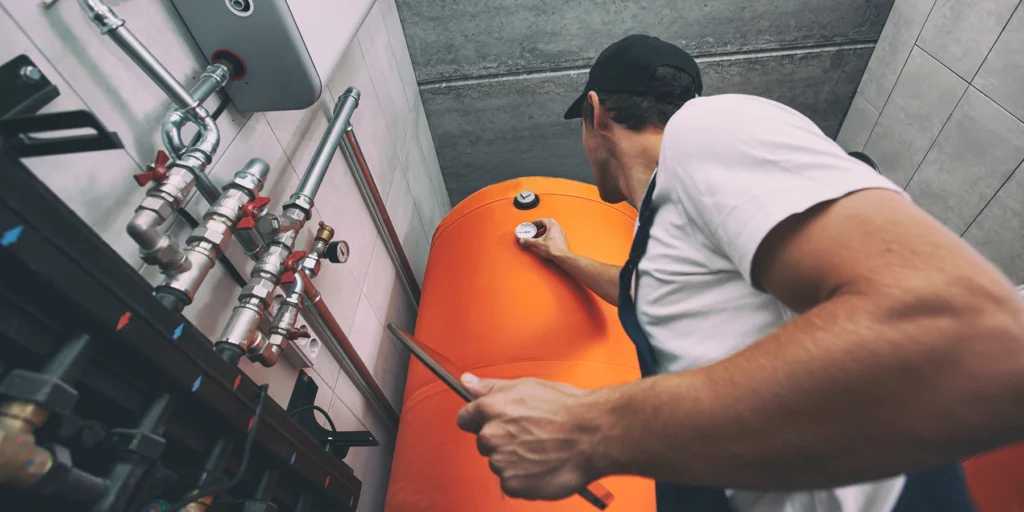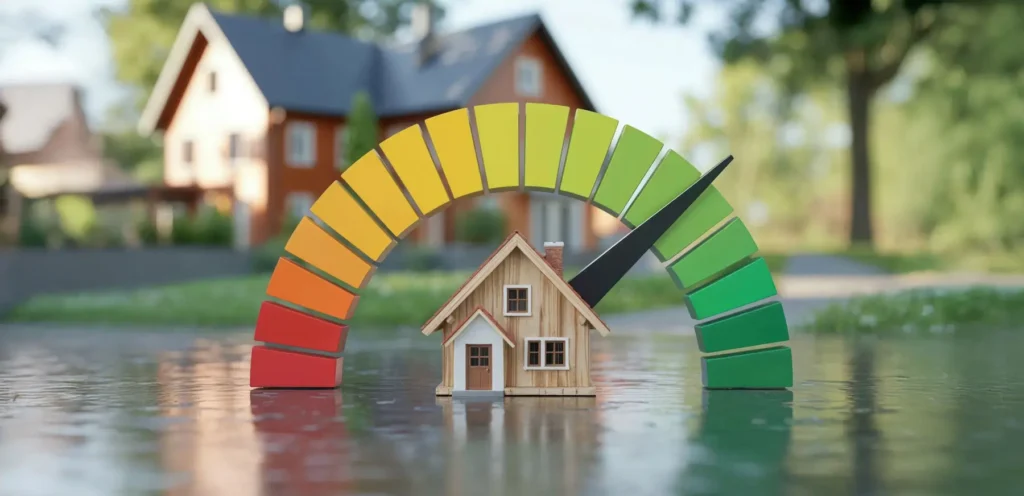As the Northeast continues to experience extreme heat, staying safe, cool, and comfortable is crucial. High temperatures can pose serious health risks, so taking proactive measures to protect yourself and your loved ones is essential. This guide offers practical tips to help you keep safe during extreme heat and ensure your well-being.
Table of Contents
Ensure Proper Ventilation and Cooling
Check that your fan or air conditioner works well. A malfunctioning cooling system can significantly impact your comfort and safety during extreme heat. Have your air conditioner serviced if necessary to ensure it runs efficiently. Good ventilation is key to maintaining a cool indoor environment, so make sure your cooling appliances are in top condition.
- Check that your fan or air-conditioner works well.
- Have your air-conditioner serviced if necessary.
Dress Appropriately
Wearing light and loose-fitting clothing helps your body stay cool. Light-colored fabrics reflect, rather than absorb, heat, while loose clothing allows for better air circulation. Choose breathable materials like cotton to keep your body temperature regulated.
- Wear light and loose-fitting clothing.
Stay Hydrated
Keep drinking water before you feel thirsty, especially outdoors or performing physical activity. Dehydration can happen quickly in extreme heat, so maintaining a steady intake of water is vital. Avoid beverages that can dehydrate you, such as alcohol and caffeinated drinks.
- Keep drinking water before you feel thirsty, especially outdoors or performing physical activity.
- Avoid caffeine and alcohol.
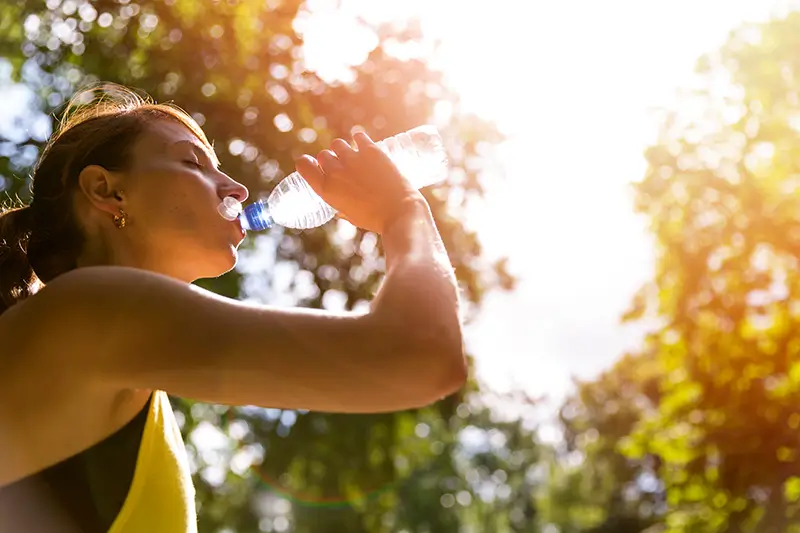
Prepare for Power Failures
Power failures can happen during times of extreme heat. Ensure you have a fully charged mobile phone or battery backup to stay connected. Stock up on food items that don’t require refrigeration and have a cool box to store ice or cool packs with medications. An ample supply of drinking water and other essential items is also crucial. Additionally, consider investing in a home standby generator. This can provide a reliable power source during outages, ensuring that your cooling systems and essential appliances continue functioning. .
- Ensure you have a fully charged mobile phone or battery backup.
- Stock up on food items that don’t require refrigeration.
- Have a cool box available to store ice or cool packs with medications.
- Ensure plenty of drinking water and other essential items.
- Consider investing in a home standby generator.
Minimize Indoor Heat Production
Limit the use of heat-producing appliances during the day. Ovens, stoves, and even some electronics can add unnecessary heat to your home. Opt for microwave or cold meals to keep your living space cooler.
- Limit heat-producing appliances during the day.
- Opt for microwave or cold meals.
- Keep drinking water before you feel thirsty, especially outdoors or performing physical activity.
- Avoid caffeine and alcohol.
Use Cooling Techniques
Soak a towel in cool tap water and wrap it loosely around your head. This simple technique can help reduce your body temperature quickly. Applying cool compresses to pulse points like your wrists, neck, and ankles can also provide relief from the heat.
- Soak a towel in cool tap water and wrap it loosely around your head.
- Apply cool compresses to pulse points.
Block Direct Sunlight
Use blinds or curtains to block the sun from shining directly through windows. Keeping sunlight out helps maintain a cooler indoor environment, and reflective window coverings can also reduce heat gain.
- Use blinds or curtains to block direct sunlight.
- Consider reflective window coverings.
Reschedule Activities
Cancel or reschedule non-essential outings during extreme heat. Staying indoors during the hottest parts of the day minimizes your exposure to high temperatures and reduces the risk of heat-related illnesses.
- Cancel or reschedule non-essential outings.
Recognize Dehydration Signs
Watch for signs of dehydration, such as feeling thirsty, lightheaded, dry mouth, and tiredness. Early recognition of these symptoms allows for prompt intervention. Rehydrating at the first sign of dehydration can prevent more serious health issues.
- Watch for signs of dehydration, such as thirst, lightheadedness, dry mouth, and tiredness.
- Rehydrate at the first sign of dehydration.
Stock Up on Essentials
Stock up on food, water, and medicines so you don’t have to go out in the heat. Having necessary supplies on hand reduces the need to enter potentially dangerous temperatures. Plan ahead to ensure you have everything you need.
- Stock up on food, water, and medicines to avoid going out in the heat.
Use Public Cooling Centers
If your home becomes too hot, take advantage of public cooling centers. Libraries, shopping malls, and community centers often provide air-conditioned environments where you can escape the heat for a few hours.
- Utilize public cooling centers like libraries and malls.
Take Cool Showers or Baths
Taking cool showers or baths can help lower your body temperature. This is an effective way to stay cool, especially if you lack air conditioning access.
- Take cool showers or baths to lower your body temperature.
Avoid Strenuous Activities
Avoid strenuous activities during the hottest parts of the day. If you need to exercise or perform physical work, try to do it early in the morning or late in the evening when temperatures are cooler.
- Avoid strenuous activities during peak heat.
- Exercise or work during cooler parts of the day.
Monitor Weather Updates & Heat Advisories
Stay informed about weather conditions. Monitor local weather reports and heat advisories to stay updated on heat levels and safety recommendations.
FAQS
How do you stay cool and safe in a heat wave?
- Drink plenty of cool fluids but avoid caffeine and alcohol.
- Avoid being outdoors when the sun is strongest in the middle of the day.
- Take frequent breaks in a cool or shaded area.
- Wear light, loose clothing, a hat, and sunglasses.
- Use sunscreen with a high SPF.
How can you stay safe in extreme temperatures?
- Stay hydrated and avoid caffeine and alcohol.
- Use air conditioning or go to public cooling centers.
- Avoid strenuous activities and stay indoors during peak heat.
- Check on vulnerable family members and neighbors.
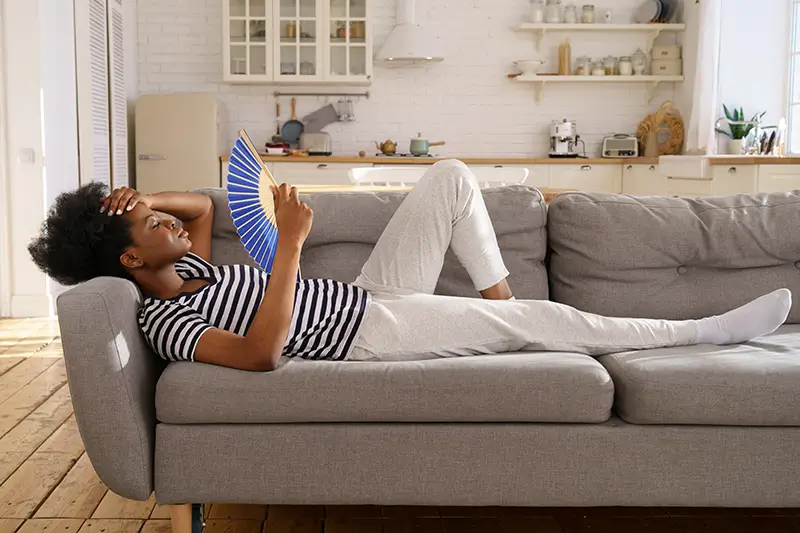
How do I keep my house cool in extreme temperatures?
- Keep curtains drawn and use reflective window coverings.
- Minimize the use of heat-producing appliances.
- Use fans with ice in front for a cooling effect.
- Take cool showers or baths.
How can you survive extreme heat without air conditioning?
- Stay hydrated and wear loose, light clothing.
- Use cool compresses or damp towels on pulse points.
- Block out sunlight with curtains or blinds.
- Spend time in public cooling centers.
- Avoid high-energy activities during the hottest part of the day.
Additional Tips from the Red Cross
Here below are some additional tips provided by the Red Cross.
- Keep water in a spray bottle for a refreshing mist.
- Freeze water bottles for portable cold water.
- Use no-bake recipes to avoid heating your home.
- Recognize signs of heat-related illnesses: dizziness, nausea, rapid breathing, extreme thirst, and decreased urination.
- Please do not rely on fans as your primary cooling device; they do not reduce body temperature.
- Ensure pet safety by providing them with plenty of water and shade.
- Know when to call 9-1-1 for heat-related emergencies.
After a Heatwave
- Open windows and blinds to allow fresh air circulation.
- Check on vulnerable family members and neighbors.
- Continue to stay hydrated.
Extreme heat can be challenging, but by following these tips, you can stay safe and comfortable. Ensure your cooling systems are functional, dress appropriately, stay hydrated, prepare for power failures, minimize indoor heat production, maintain social connections, use cooling techniques, block direct sunlight, reschedule activities, recognize dehydration signs, stock up on essentials, use public cooling centers, take cool showers or baths, avoid strenuous activities, and monitor weather updates. These steps will help you navigate the heat safely and effectively.


